Women’s organizations review accomplishments of the regional programme on ending violence against women in the Western Balkans and Turkey
Date:
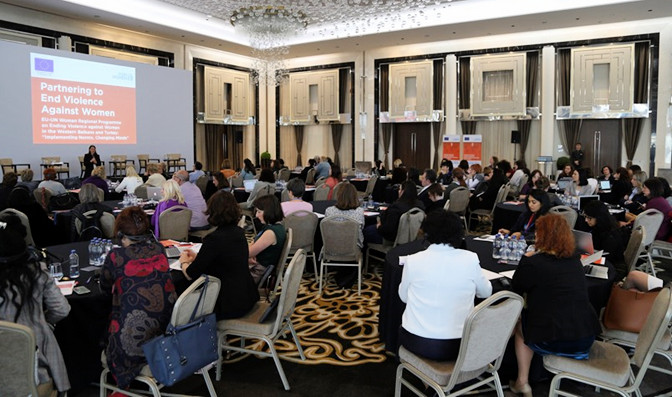
At least 3,500 women, including minority women, are gaining a better understanding of their rights and of how to access available services when facing violence. Over 250 organizations are better equipped to monitor and report on human rights legal instruments and push for the development and implementation of comprehensive and coordinated policies on violence against women. And more than 1,500 law enforcement and service providers involved in prevention, prosecution and protection in cases of violence against women are being trained in case management, data collection, reporting, and referral and response mechanisms. All these achievements were possible thanks to the EU-UN Women regional programme on ending violence against women “Implementing Norms, Changing Minds,” funded by the European Union.
Over 50 civil society representatives from the Western Balkans and Turkey met in Istanbul on 7-8 May to take stock of the main challenges, achievements and lessons learned in the implementation of the EU-UN Women regional programme on ending violence against women “Implementing Norms, Changing Minds,” funded by the European Union.
The programme, which entered its third year of implementation and has engaged over 60 civil society partners across the region, aims at ending gender-based discrimination and violence against women in the Western Balkans and Turkey, with a particular focus on the most disadvantaged groups of women.
The partner’s meeting was also an occasion to inform programme implementation for the next 24 months and to provide recommendations for the upcoming Regional Forum on the Implementation of the Istanbul Convention, expected to take place in October 2019.
Partner’s voices
Albania
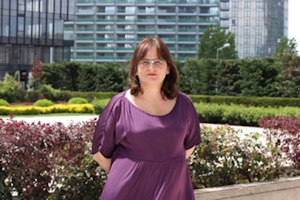
“The role of civil society, mainly women’s organizations, who work on gender-based violence is very important in order to keep all the available mechanisms accountable as well as to identify gaps and possibilities for improvement.”
Mirela Arqimandriti
Executive Director
Gender Alliance for Development Center
Bosnia and Herzegovina
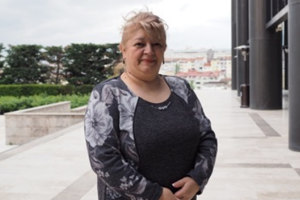
“The project we are implementing under the regional programme aims exactly at implementing norms and changing minds, and so far, we are happy with the outcomes. We have managed to ‘change the minds’ of service providers in locations where we work, and now they come to deliver trainings on their own initiative, making it possible for women to hear first-hand about the services available to them in their communities, as well as to tackle specific issues on the spot.”
Indira Bajramovic
Director
Roma Women’s Association
Bolja Buducnost, Tuzla
Kosovo (under UNSCR 1244)
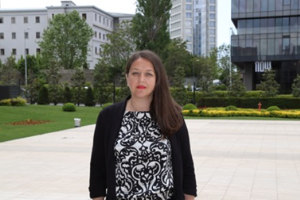
“In Kosovo[1] , norms are rather powerful in the community. Unfortunately, violence is often considered a legitimate norm. I think that this should change. It is time for women and girls to live free of violence in their homes, families, and communities and also to raise our children free of violence.”
Luljeta Demolli
Executive Director
Kosovar Gender Study Centre
Montenegro
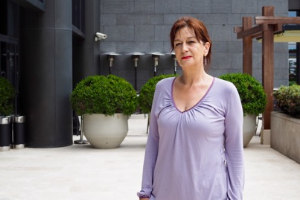
“Our organization, like many other partners of the regional programme, acts on a number of levels: on one hand, we provide support service to women survivors of violence, and on the other hand, we monitor laws, policies, and practices, provide recommendations to the Government and conduct various campaigns.”
Biljana Zekovic
NGO SOS Telephone for Women and Children Victims of Violence
North Macedonia
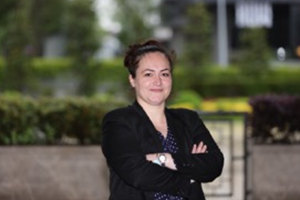
“Being part of the regional programme is very important for Roma women because they must be aware of their rights; they have to be aware how to protect themselves from discrimination or violence in any form, including domestic violence. We must work together with other organizations and be aware that we are stronger together. We must push the limits, not only by adopting policies but also by following up on their implementation and demanding accountability from our governments.”
Katerina Shojic
Project Manager
National Roma Centrum
Serbia
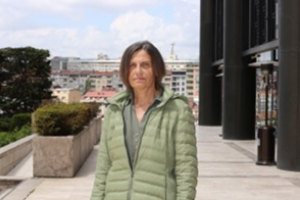
“We work on empowering rural women to recognize and report violence and to seek support. Based on our previous experience, rural women, and marginalized women overall have problems in recognizing violence, primarily because they often normalize the situation they are in, they normalize violence. Also, they face problems when seeking help and reporting violence, so when it happens, they are not sufficiently encouraged by relevant institutions to continue the whole process.”
Snezana Jakovljevic
Activist
Women’s Association Peščanik, Kruševac
Turkey
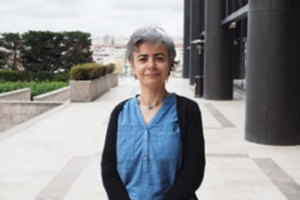
“The main issue affecting refugee women who experience gender-based violence is the lack of tailor-made services, measures, and policies adjusted to the very specific needs of refugee women. We should collaborate more. We should find ways to reach out to women refugees. To be able to do so, we need resources including funding and organization. In addition, we should also find ways to cooperate with public authorities and the State.”
Huriye Karabacak
Member
Foundation for Women’s Solidarity
Photos: UN Women/Giulia Gustavsen - Gökhan Bayhan
[1] All references to Kosovo on this website shall be understood to be in full compliance with UN Security Council Resolution 1244 (1999).